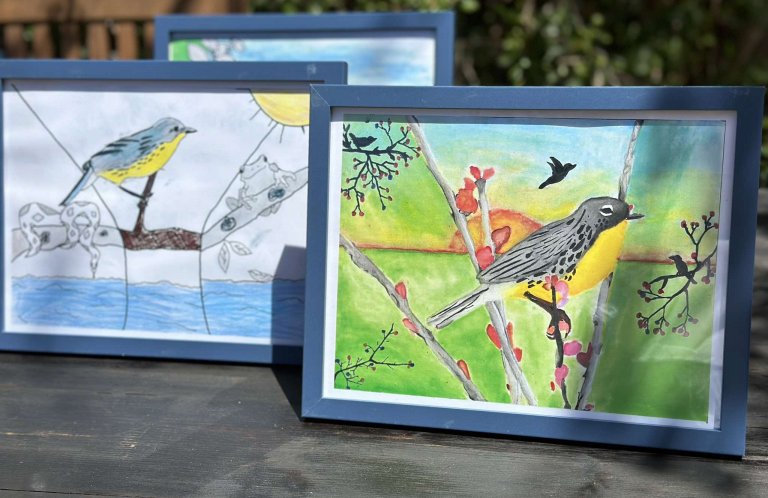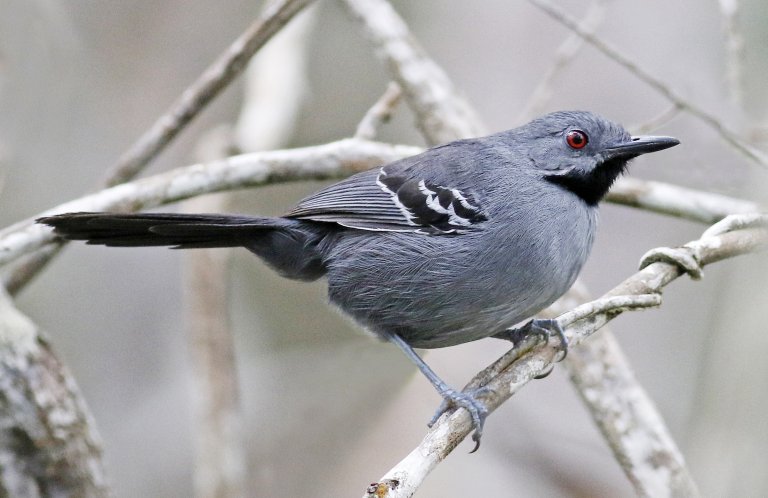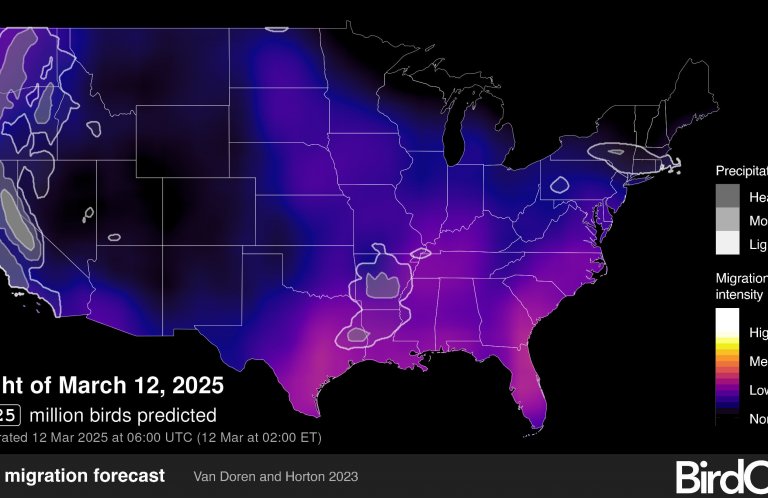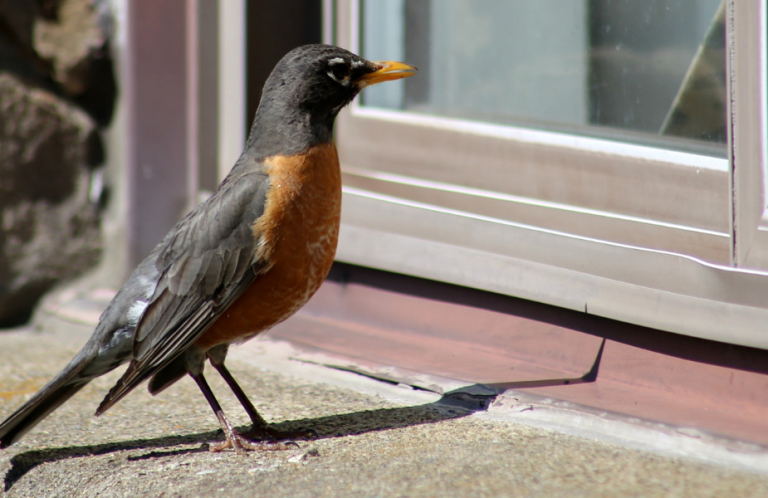Hawai‘i's Lanai Cat Sanctuary Also Helps to Protect Endangered Birds
The conflict between cats and birds is ancient. But in recent years, as domestic cats have spread to new environments around the world, their ubiquity and predatory behavior has taken an irreparable toll on native species. Cats have contributed to the extinction of 63 wildlife species worldwide and are the top source of direct, human-caused mortality to birds in the United States and Canada.
Although cats make wonderful pets, we clearly need to care for them responsibly and minimize their impact on birds and other animals. Nowhere is this more evident than in Hawai‘i, where native birds — their numbers already in decline — are very much at risk of being killed by cats.
A search for solutions to this problem recently led me to Lana‘i, a serene Hawaiian island just west of Maui. There, on a remote plot of land a few miles outside of Lanai City, is the Lanai Cat Sanctuary. The 3-acre sanctuary, which is run by Executive Director Keoni Vaughn, engages conservation partners and local residents to safely trap free-roaming cats and relocate them to the sanctuary.
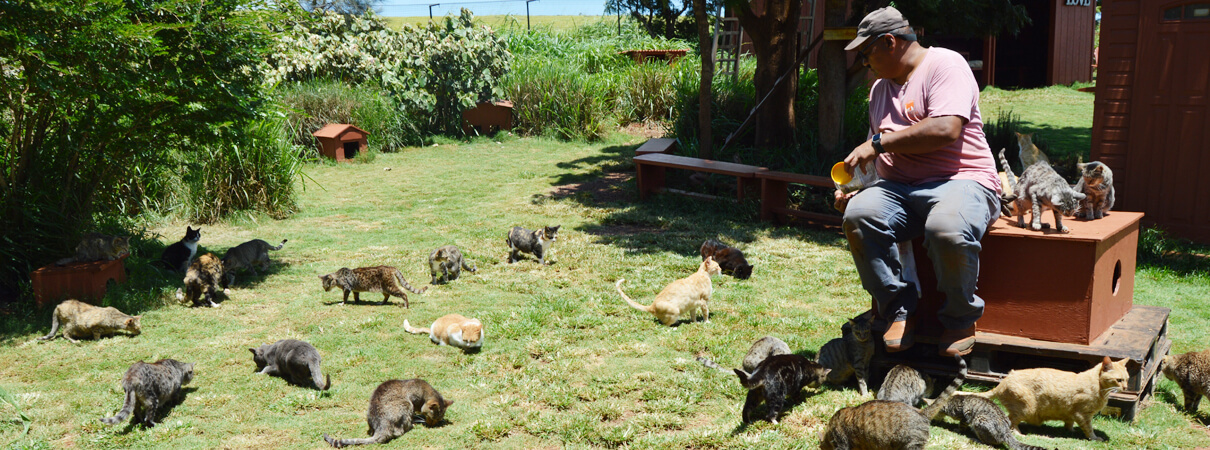
Sanctuary Manager Michael Hanog takes a few moments to share tasty treats with the cats. The cats' food arrives weekly by barge. Photo by Louisa Phillips
The cats live there like royalty, enjoying regular veterinary care, plenty of food (the sanctuary goes through 75 to 80 pounds of cat food every day), secluded nooks and crannies, and lots of affection. Despite housing nearly 600 cats, the sanctuary feels completely uncrowded and has even become a tourist destination: Roughly 8,000 people visited the sanctuary in the 2016 fiscal year, Vaughn told me.
To date, 54 cats have been adopted; for nearly all of them, their new homes are off the island. Vaughn says the sanctuary has two strict policies for on-island adoptions: New owners must agree to keep the adopted cats indoors, and the sanctuary won't adopt out a cat that was trapped from an area where native or endangered birds were nesting. "This eliminates the risk of the cat escaping a home and finding its way back to the nest," Vaughn says.
When I visited Lana‘i this past summer, I was struck by how pleasant the sanctuary was, how much the visitors appeared to be enjoying the cats, and how comfortable the cats — most of them previously feral — were in their new home. And I wondered: Are facilities like the Lanai Cat Sanctuary a solution to the age-old conflict between cats and birds?
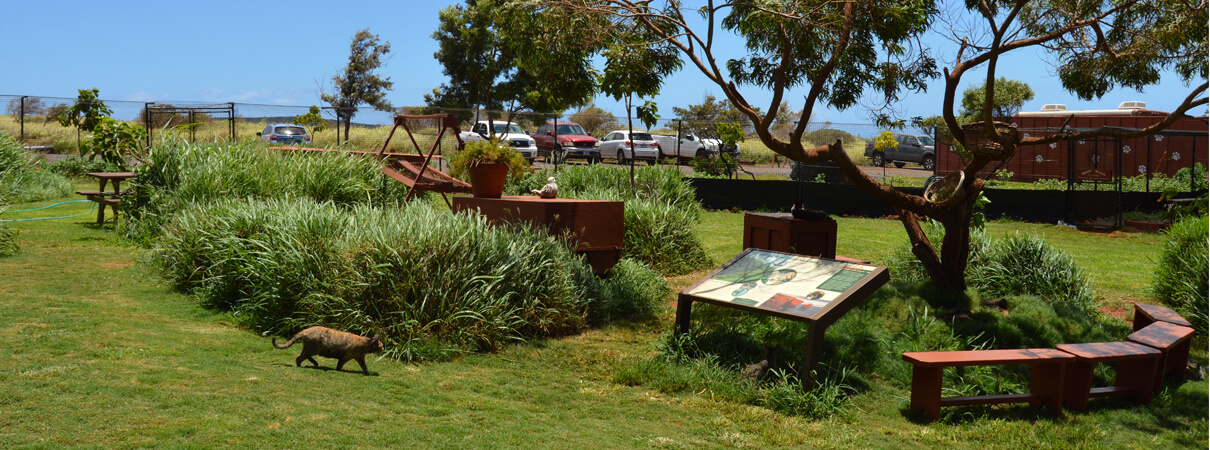
The Lanai Cat Sanctuary sits on three acres and houses nearly 600 cats, 60 percent of which are feral. The cats have plenty of space and structures on which to perch, lounge, and play. Photo by Louisa Phillips
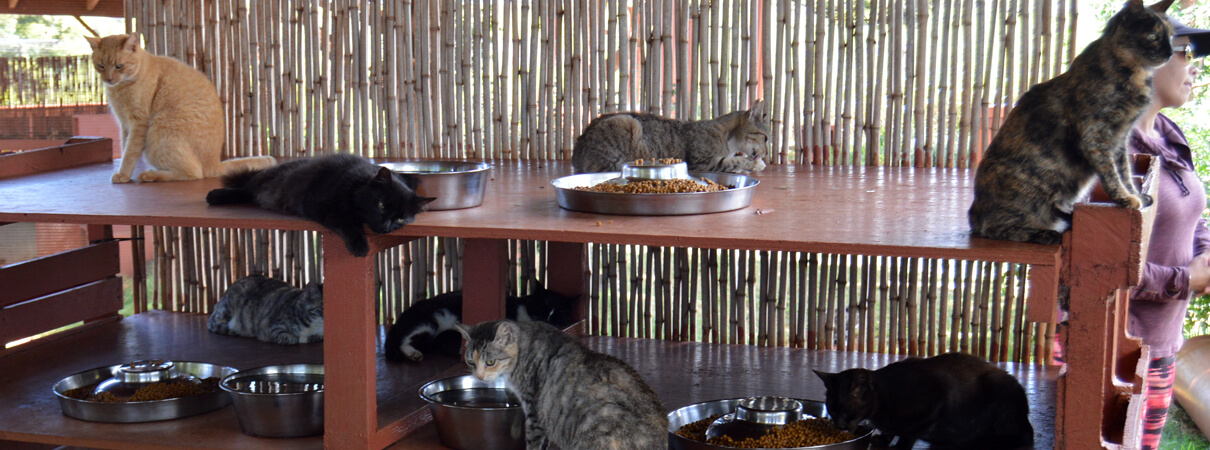
The sanctuary's informal motto is “Saving cats and protecting endangered birds.” Many of the cats at the sanctuary would otherwise be hunting for food among Lanai's native birds. Photo by Louisa Phillips
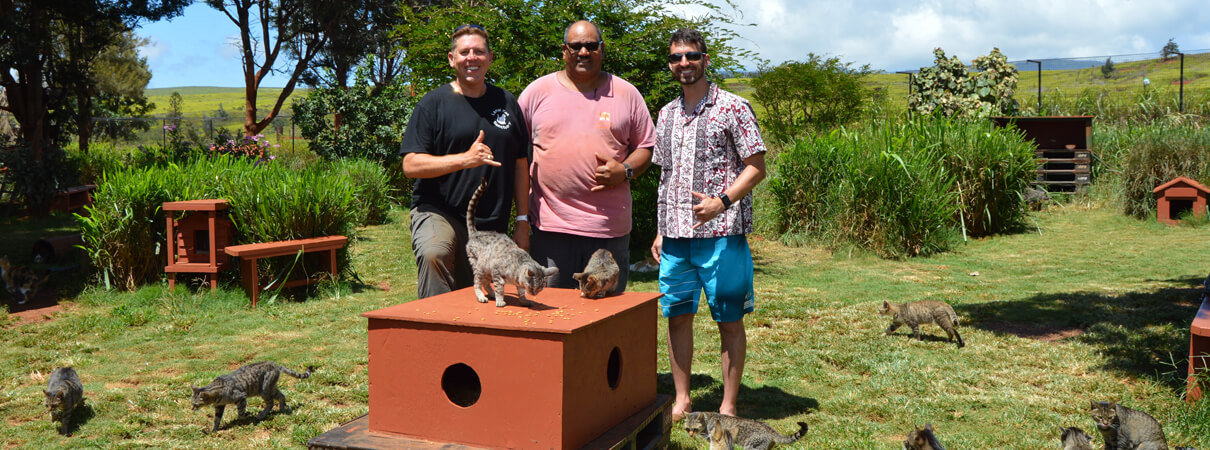
ABC's Grant Sizemore (right) with Lanai Cat Sanctuary Executive Director Keoni Vaughn (left) and Sanctuary Manager Michael Hanog (middle) among several of the sanctuary's residents. Photo by Louisa Phillips
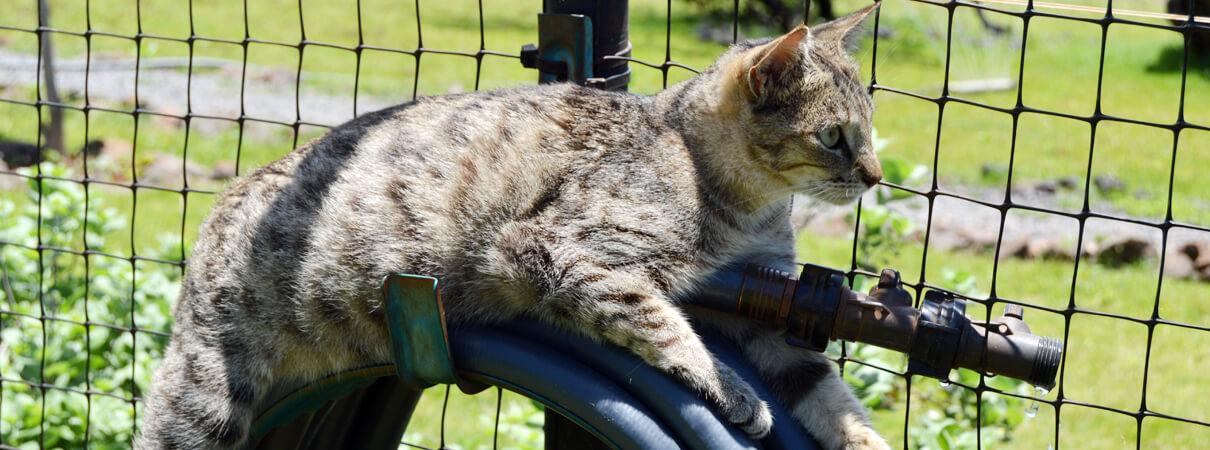
Cats will be cats, and this one has found an unusual perch atop a garden hose. All sanctuary cats are available for adoption. Photo by Louisa Phillips
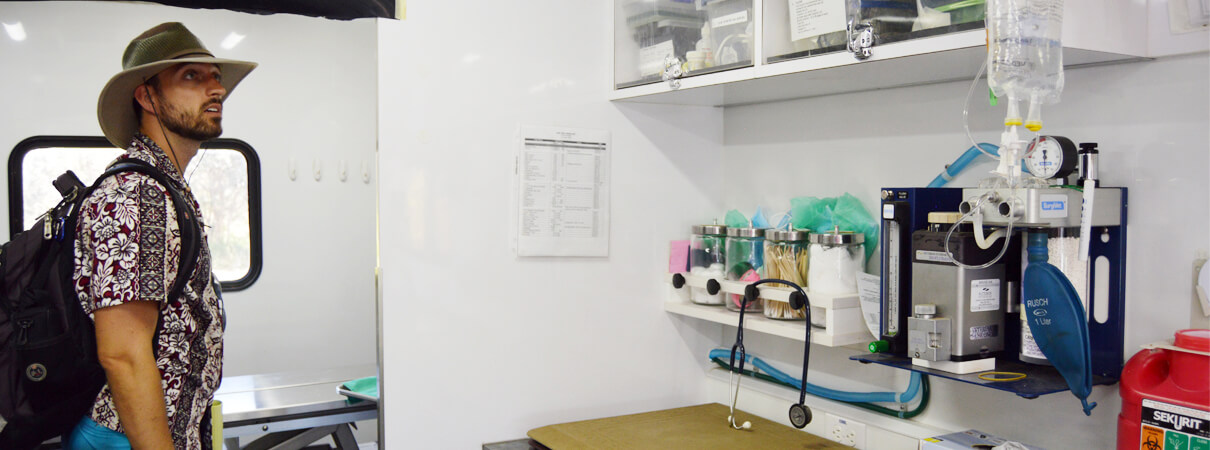
ABC's Director of Invasive Species Programs, Grant Sizemore, tours the sanctuary's veterinary facilities. The sanctuary's feline residents receive veterinary care twice each month. Photo by Louisa Phillips
 Grant Sizemore is American Bird Conservancy's Director of Invasive Species Programs. He has degrees in Zoology and Environmental Science from Miami University and an M.S. in Wildlife Ecology and Conservation from the University of Florida. Grant has worked toward wildlife conservation through policy, outreach, education, and years of research. He enjoys hiking, birding, and taking care of his (indoor) cat.
Grant Sizemore is American Bird Conservancy's Director of Invasive Species Programs. He has degrees in Zoology and Environmental Science from Miami University and an M.S. in Wildlife Ecology and Conservation from the University of Florida. Grant has worked toward wildlife conservation through policy, outreach, education, and years of research. He enjoys hiking, birding, and taking care of his (indoor) cat.





































